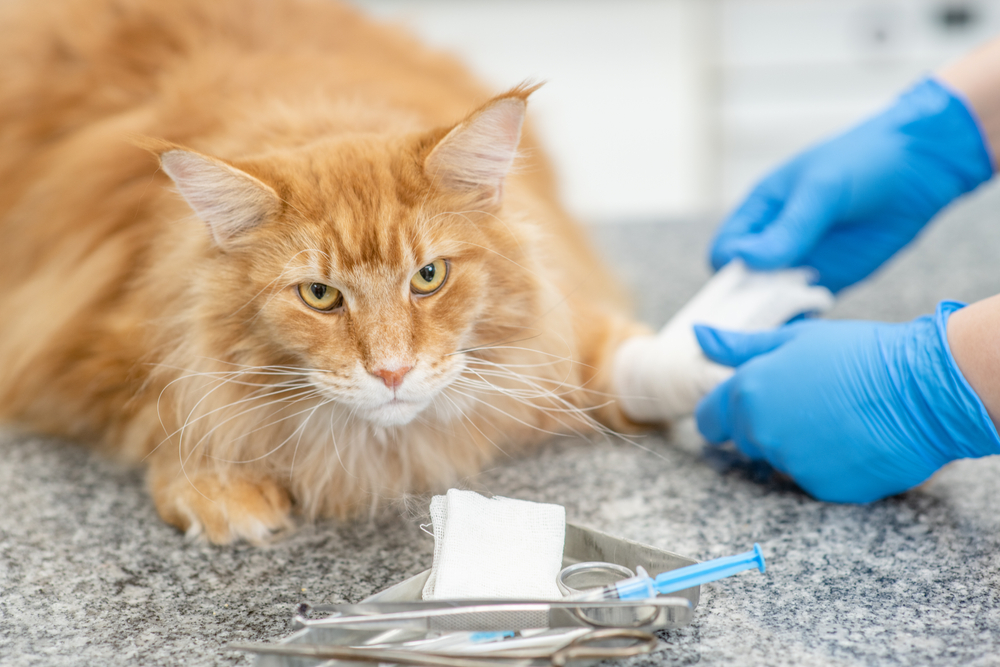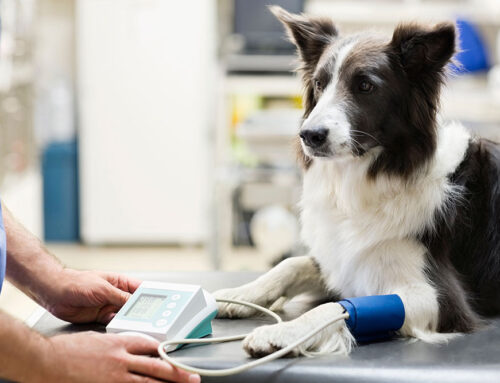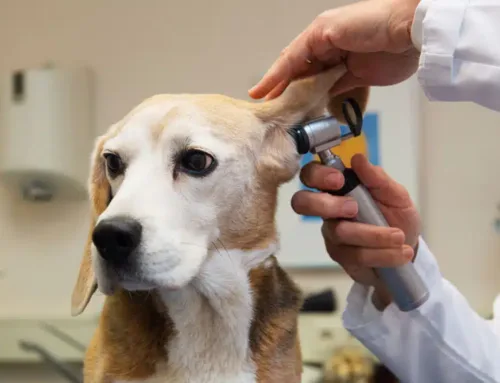Pets instinctively hide pain and illness, so you can’t count on them to let you know when something is wrong. Instead, paying close attention to your pet’s behavior, attitude, habits, and appearance can alert you to the possibility of a problem and prompt you to schedule a veterinary visit. The Fairfax Veterinary Clinic team shares the most common illness signs that warrant a thorough veterinary examination and treatment.
#1: Vomiting or diarrhea in pets
Vomiting or diarrhea are clear signs your pet’s gastrointestinal tract is in trouble. A single episode here and there might be normal for some pets, especially if they have a sensitive stomach and ate something that didn’t agree with them. However, repeat, back-to-back episodes, recurring problems, or episodes accompanied by other illness signs, such as a refusal to eat, lethargy, or stomach pain, warrant a veterinary visit.
#2: Appetite or thirst changes in pets
Any change in your pet’s eating or drinking habits could indicate an underlying medical issue or, in some cases, a behavioral problem related to stress or anxiety. Endocrine disorders, kidney failure, toxin ingestion, foreign body obstruction, and dental pain are a few of the possible causes—all of which warrant a veterinary examination.
#3: Excessive scratching, licking, chewing, or head-shaking in pets
Itchy skin or ears can indicate allergies, a common problem for dogs and some cats. Instead of allergies affecting the upper respiratory tract, they cause inflammation in the skin and ear canals, often leading to secondary infections. Inflammation and infection from allergies can pop up and progress quickly, so don’t wait to visit the veterinarian.
#4: Eye squinting, discharge, or redness in pets
Pets can develop a multitude of eye problems, from minor irritation to dry eye disease, corneal injuries, glaucoma, and blindness. Flat-faced (i.e., brachycephalic) breeds typically have more eye problems than others. You should take any changes in your pet’s eye health seriously and schedule a visit with your veterinarian to prevent potentially permanent damage to their eyes.
#5: Weight loss or gain in pets
Weight gain or weight loss are signs your pet’s diet and nutrition aren’t appropriate for their lifestyle or they have an underlying medical problem. Thyroid, kidney, and gastrointestinal disorders are often to blame for weight changes, and the sooner they are diagnosed and treated, the better your pet’s long-term outcome.
#6: Changes in your pet’s energy level
Less interest in play and a lower overall activity level are often part of the normal aging process for dogs and cats, but sudden or drastic changes need investigation. Energy increases could be because of an overactive thyroid or anxiety, while almost any illness can make pets feel lethargic. Pets displaying these admittedly vague changes should be examined by a veterinarian.
#7: Bad breath in pets
Dental disease is the most commonly diagnosed medical problem in companion animals and usually begins before age 3. Bad breath often signals a problem inside the mouth, which likely is causing pain or discomfort. A rotten, sweet smell on the breath also could indicate diabetes or kidney disease and warrants a veterinary visit.
#8: Increased urine volume or thirst in pets
Many diseases increase a pet’s urine output, causing them to drink more to compensate and stay hydrated. Polyuria and polydipsia, known in the veterinary world by the shorthand PU/PD, can indicate kidney disease, diabetes, adrenal problems, toxin ingestion, and more. Schedule a visit right away if you notice this change in your furry pal.
#9: Accidents in the house or blood in a pet’s urine
Urinary accidents in the house can indicate a problem with urgency, increased urine production, or reduced mobility that limits a pet’s ability to get to the door, pee pad, or litter box. Urinary tract inflammation, urinary tract infection, bladder stones, arthritis, stress, or any of the disorders listed above could be to blame. Schedule a veterinary visit as soon as possible to determine which is the culprit.
#10: Limping in pets

Limping or lameness that doesn’t get better after a few days should be checked out by your veterinarian. An injury, back problem, tick-borne disease, cancer, or autoimmune disease could be causing the limp, all of which require expert treatment and care. Limping is a sign that your pet is in pain, so regardless of the cause, you should schedule a visit with your veterinarian to ensure your pet’s overall comfort level.
Keep in mind that the list above is not all-inclusive. You know your pet the best, so if you feel something is off, trust your instincts and call our team. Most acute or chronic conditions respond best when treatments are started early, before the issue worsens and your pet’s health declines. Contact our Fairfax Veterinary Clinic team to schedule an appointment or to determine whether the signs your pet is displaying warrant an urgent, emergency, or regular veterinary examination.








Leave A Comment